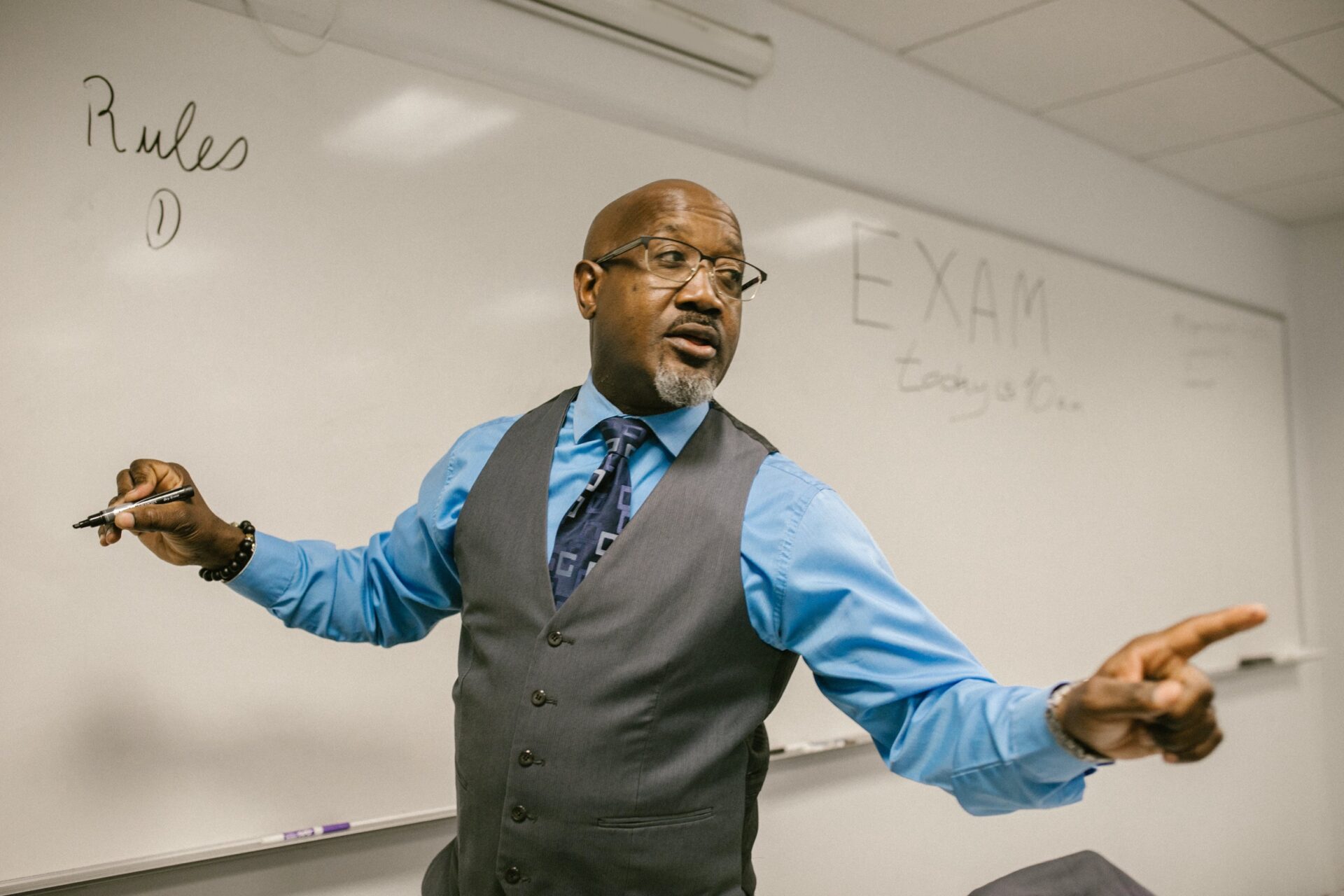
February 9, 2024
UNCF Releases Special Report On Black Teacher Pipelines At HBCU Teacher Education Programs
The UNCF released a special report detailing recruitment, curricular, and co-curricular best practices that are being implemented at HBCU schools.
The United Negro College Fund (UNCF) released a special report detailing recruitment, curricular, and co-curricular best practices that are being implemented at HBCU schools as major producers for public education systems across the country.
According to a UNCF release, the 40-page paper, titled “The Heart Work of Hard Work: Black Teacher Pipeline Best Practices at HBCU Teacher Education Programs,” identifies the best practices at four participating HBCUs to strengthen the Black teacher pipeline.
The HBCUs participating in the report are Huston-Tillotson University, Alabama A&M University, Albany State University, and Fayetteville State University. All four HBCUs are listed among the top 25 four-year HBCUs that produce college graduates who become Black teachers in various K-12 education fields.
Additionally, the report notes Black teachers impact the educational development of Black students by serving as role models, improving their educational experience, improving graduation and college enrollment rates, increasing Black students reading and mathematics state scores, and increasing end-of-year grades.
“Black teachers are essential to Black students’ educational, social, and emotional development. Yet, Black teachers only make up 7% of teachers in America,” Keeley Copridge, Ph.D., senior research associate, Frederick D. Patterson Research Institute, UNCF, and one of the report’s authors, said in a statement. “To meet the diversification of America’s P-12 system, it is essential that we strengthen the Black teacher pipeline. Historically Black colleges and universities are critical conduits in the Black teacher pipeline.”
HBCUs account for just 3% of colleges and universities, yet they produce 15% of Black graduates overall and 50% of all Black educators, according to UNCF’s Frederick D. Patterson Research Institute (FDPRI) and the National Association for Equal Opportunity in Higher Education.
According to the report, the scarcity of Black teachers in the U.S. is the result of several factors, including desegregation, racism, and the incorporation of standardized tests that resulted in many Black teachers losing their teaching licenses. Additionally, teacher certification exams eliminated nearly 100,000 minority educators in 35 states between the late 1970s and early 1990s. The report added the verification exams are not ideal tools used to screen the effectiveness of Black teachers.
“Black teachers are knowledgeable of these barriers; however, they do not grant students pursuing teaching careers permission to fail; instead, we continue to maintain high expectations for the students to succeed,” Nadrea Njoku, Ph.D., assistant vice president, Frederick D. Patterson Research Institute, UNCF said in a statement. “The research is clear. Black teachers matter. Scholarship repeatedly illuminates how Black teachers have a deep understanding of Black students and their lives in and outside of the classroom.”
The conclusion of the report calls for:
- Continued research and analysis of culturally responsive curriculum in teacher education programs
- Examination of the validity of teacher certification exams and potential barriers promoting the exclusion of specific student populations
- Advocating at the federal and state level for funding for HBCU teacher education programs
- Engaging private organizations to partner with HBCU teacher education programs to assist in supporting future educators
- Increasing funding resources for HBCU faculty to implement innovative practices
- Continued establishment and promotion of non-traditional pathways to becoming an educator
RELATED CONTENT: